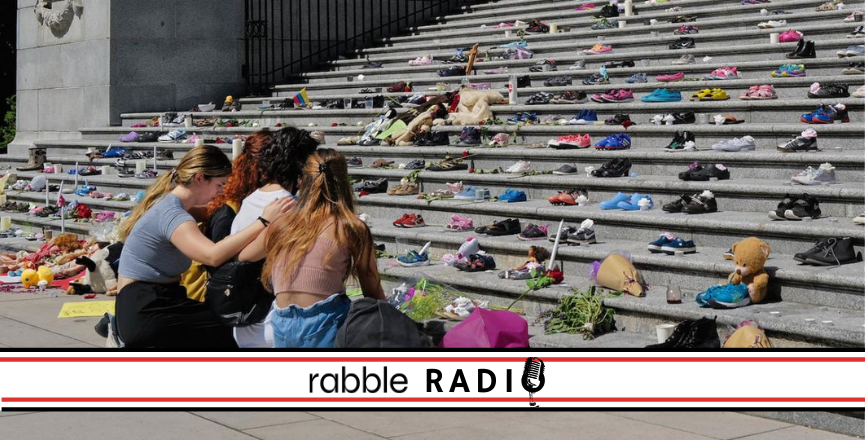This week on the show, rabble editor Chelsea Nash sat down for a conversation with rabble’s own columnist Chuka Ejeckam. Chuka is a writer and policy researcher who works in the labour movement. The son of Igbo immigrants to Canada, he grew up in Winnipeg.
They talked about what was missing from this federal election, and as Chuka notes, we were in large part missing substantive media coverage. They also talked about the first ever National Day for Truth and Reconciliation which took place on Thursday. What does it tell us about how the federal government approaches ongoing issues of colonialism and racism?
Chuka Ejeckam is also a regular panelist at our monthly politics show: Off the Hill. You can read his writing on the site, where he focuses on inequity and inequality, drug policy, structural racism and labour. You can also find him on Twitter @ChukaEjeckam.
IN CASE YOU MISSED IT
This segment is where we review the week’s top headlines. Here’s the rundown.
Yesterday was of course the very first National Day of Truth and Reconciliation — though it was far from the first Orange Shirt Day. Since 2013, Indigenous peoples across Canada have been honouring survivors and victims of Canada’s Residential School System by wearing an orange shirt. The shirt symbolizes the loss of childhood residential school attendees experienced, in honour of Phyllis Webstad’s bright orange shirt she wore when she arrived at a residential school, but was quickly stripped of as she and all the other children were forced into uniforms. She never saw that shirt, which had been a gift from her grandmother, again.
Even though the day has passed, uncovering Canada’s truth and engaging in reconciliation is an ongoing process, not something to be thought of once a year.
Here at rabble, we were grateful to Rachel Snow, an Indigenous activist and educator of the Iyahe Nakoda nation, for debuting her first rabble column on Thursday, in which she transformed the word “reconciliation” into “wreck-onciliation” spelt wreck. A wreck it has been. Rachel takes readers through the very recent history of the impacts ongoing colonialism has on First Nations and how the federal government continues to fall short.
On Wednesday, September 29, Federal Court Justice Paul Favel rejected the Trudeau government’s appeal of those decisions. Karl Nerenberg has that report, concluding that unfortunately, this may not be the last of this battle. The federal government could in fact file for a further appeal.
Meanwhile, politics reporter Stephen Wentzell wrote about how Indigenous MPs were marking the day, noting that the 12 elected Indigenous MPs (a record number, by the way — in 2019 there were 11) occupy only 3.5 per cent of the seats in the House of Commons.
Also on the site this week:
Pam Palmater writes about how the rise of the People’s Party of Canada is a symptom of government inaction on rising levels of hate that primarily Black, Indigenous and other people of colour are experiencing.
Penney Kome writes about the inevitability of electric vehicles.
Doreen Nicoll writes about North America’s first Black food sovereignty plan which Toronto City Council will be voting on today, Friday October 1.
Plus much more!



